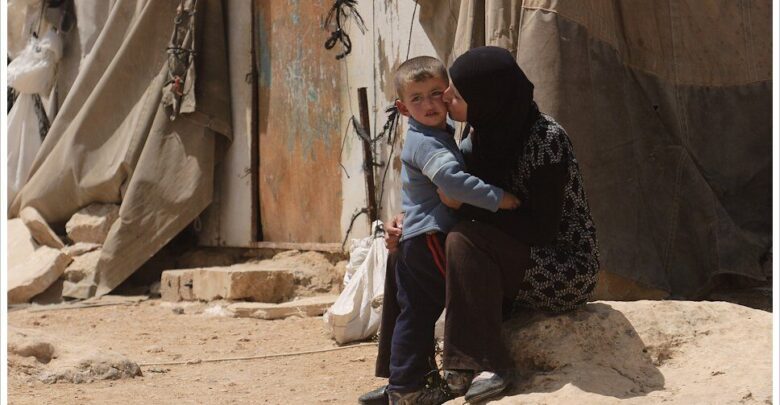** This article includes useful resources to support victims of the Israel-Palestine Conflict
Gaza faces a dire situation as it grapples with a week-long siege and relentless aerial bombardment by Israel, drawing concerns of further escalation and the safety of fleeing civilians. US Secretary of State Antony Blinken’s return to Israel underscores growing international efforts to address the crisis, including the urgent need to open a humanitarian corridor to Gaza via Egypt.
Beyond the immediate region, this enduring crisis has triggered “headline stress disorder” or “war anxiety” among people worldwide. Now, experts look into the global impact of war anxiety, its signs, coping strategies, and how individuals can aid those affected from a distance more than ever before.

What Are The Signs of War Anxiety?
For many people, war anxiety stems from the fear that similar tragedies may occur in their own countries.
People often battle with fresh emotions marked by uncertainty and heightened stress as the global catastrophe of war develops. Fear of how this battle will affect not just the local economy but also job security, national security, and the well-being of loved ones is a frequent reaction.
There is a greater demand for control in the face of this flood of war-related material. People get obsessed with news in order to preserve a sense of control over their life. This constant search, though, may interrupt everyday patterns and, ironically, heighten emotions of anxiousness.
Furthermore, for people who already have anxiety, post-traumatic stress disorder (PTSD), or depression, constant exposure to disturbing news may worsen their mental health, making it even more important to discover good coping techniques.
How Can You Cope With War Anxiety?
Coping with War Anxiety
To manage war anxiety, it’s essential to strike a balance between staying informed and preserving your emotional and physical well-being. Here are some strategies:
Mute Triggering Content: Avoid topics, words, or phrases that trigger anxiety. Step away from news coverage if it becomes overwhelming.
Limit News Consumption: Too much information can be counterproductive. Turn off or delete news apps if they are causing distress.
Be Selective on Social Media: Be intentional about the type of content you consume on social media. Stick to trusted news sources and unfollow accounts that promote misinformation.
Accept Uncertainty: Focus on what you can control, including your own well-being. Embrace the reality of uncertainty and practice accepting your emotions.
Prioritize Self-Care: Prioritize physical health through exercise, nutrition, and sleep. Engage in activities that bring joy and connect with friends and family to alleviate feelings of isolation.

How to Help Victims of the Israel-Hamas War
If you want to support the victims of this conflict, the following resources accept donations and other types of aid:
ActionAid: This international network is dedicated to building a more equitable and sustainable world. It has set up an emergency response fund for delivering essential relief and ensuring long-term disaster preparedness worldwide.
Doctors without Borders/Médecins Sans Frontières (MSF): This independent humanitarian organization offers emergency medical care in areas of need, including Gaza. They provide medical supplies and support local hospitals.
International Committee of the Red Cross: A neutral humanitarian organization, it offers assistance to people harmed by armed conflict and disasters in conflict zones, aiding both sides and identifying missing persons.
IsraAID: As Israel’s largest humanitarian aid organization, IsraAID is collecting donations through its Emergency Response Fund and is focusing on coordinating humanitarian activities, especially for children and families affected by the conflict.
Jewish Agency for Israel: Their Fund for Victims of Terror provides immediate financial assistance to victims and their families and offers long-term support for recovery and rehabilitation.
Jewish Federations of North America: This group supports victims of terror, rebuilds infrastructure, and addresses trauma caused by the attacks, with a $500 million campaign to aid Israelis.
Middle East Children’s Alliance: This nonprofit supports community projects for Palestinian children and is preparing to procure medical supplies and provide emergency assistance to affected families.
Palestine Children’s Relief Fund: They provide medical and humanitarian relief to Arab children in Gaza, including access to medical care, mental health support, and essential supplies.
Save the Children: The organization has disbursed $1 million from its emergency fund to provide lifesaving aid in both Israel and Gaza.
United Nations Children’s Fund (UNICEF): UNICEF is on the ground in Gaza, delivering medical supplies, fuel, and mental health support to protect children’s lives and rights in the region.
By supporting these organizations, people can make a difference and provide much-needed assistance to those affected by the Israel-Palestine conflict.









